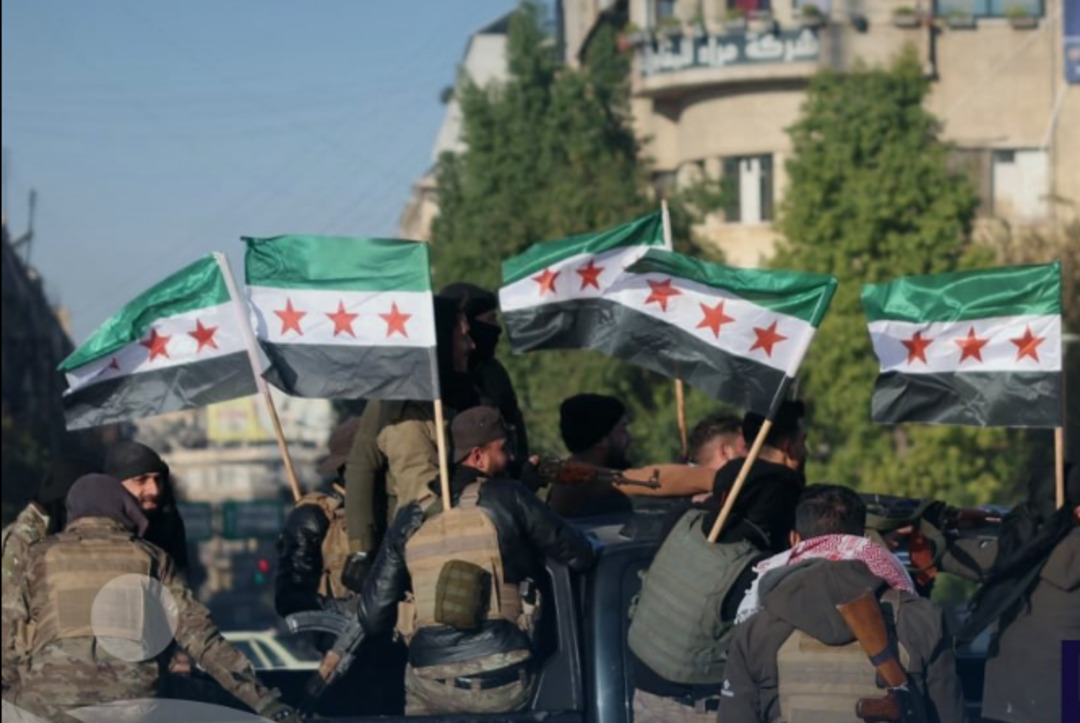-
"Turkish-Iranian-Russian" meeting in Doha amid complex reality in Syria

Military and political pressures are increasing on Syrian President Bashar al-Assad, amid a decline in overt support from his traditional allies, Russia and Iran. Reports indicate that both Moscow and Tehran have begun to rearrange their interests in Syria, moving away from strong commitments to Assad's survival, which exposes him to complex political and military challenges.
Recently, there have been rumors about Asma al-Assad and her children traveling abroad. Meanwhile, Iran has stated that Bashar al-Assad's fate remains uncertain. Diplomatic sources confirmed to "Syrian TV" that some Arab and Gulf states have suggested he leave the country until the situation on the ground becomes clearer.
On the other hand, Lebanese sources told "Syrian TV" that Lebanese officials informed Hezbollah that the United States, Turkey, and some Arab countries are seriously supporting efforts to topple the Syrian regime and Bashar al-Assad's rule.
In a statement, the TASS news agency reported Russian Foreign Ministry spokeswoman Maria Zakharova as saying that the foreign ministers of Russia, Turkey, and Iran will hold special meetings regarding the Syrian crisis in Qatar.
For his part, Qatari Prime Minister Sheikh Mohammed bin Abdulrahman bin Jassim Al Thani pointed out Assad's failure to communicate with his people or address pressing issues like the return of refugees during the relative calm of the war, stating that Assad has not taken advantage of this opportunity to strengthen his relationship with his population.
On the ground, significant changes are occurring in southern Syria, where opposition factions and anti-regime groups have managed to seize large areas of Daraa, Suwayda, and Quneitra. These factions have succeeded in taking important military positions, raising doubts about Assad's ability to regain control.
There is an increase in military preparations by opposition forces in central Syria, as the "Military Operations Administration" seeks to advance toward the city of Homs after successfully establishing control over the cities of Aleppo and Hama and expelling regime forces from Idlib province, representing a significant blow to the regime's capabilities.
Politically, the military decline coincides with increasing discussions about Assad's future, with questions surrounding his ability to continue in power amid weak support from his allies. Recent moves by Russia and Iran indicate new trends in the alliance map, where strategic interests appear to be more important than previous commitments to the regime.
In this context, Bashar al-Assad realizes he is trapped both internally and externally, with his political and military options declining like never before. As reports suggest a decrease in Assad's confidence in his allies, speculation is growing about the regime nearing a turning point that could determine its fate in the near future.
You May Also Like
Popular Posts
Caricature
BENEFIT Sponsors BuildHer...
- April 23, 2025
BENEFIT, the Kingdom’s innovator and leading company in Fintech and electronic financial transactions service, has sponsored the BuildHer CityHack 2025 Hackathon, a two-day event spearheaded by the College of Engineering and Technology at the Royal University for Women (RUW).
Aimed at secondary school students, the event brought together a distinguished group of academic professionals and technology experts to mentor and inspire young participants.
More than 100 high school students from across the Kingdom of Bahrain took part in the hackathon, which featured an intensive programme of training workshops and hands-on sessions. These activities were tailored to enhance participants’ critical thinking, collaborative problem-solving, and team-building capabilities, while also encouraging the development of practical and sustainable solutions to contemporary challenges using modern technological tools.
BENEFIT’s Chief Executive Mr. Abdulwahed AlJanahi, commented: “Our support for this educational hackathon reflects our long-term strategic vision to nurture the talents of emerging national youth and empower the next generation of accomplished female leaders in technology. By fostering creativity and innovation, we aim to contribute meaningfully to Bahrain’s comprehensive development goals and align with the aspirations outlined in the Kingdom’s Vision 2030—an ambition in which BENEFIT plays a central role.”
Professor Riyadh Yousif Hamzah, President of the Royal University for Women, commented: “This initiative reflects our commitment to advancing women in STEM fields. We're cultivating a generation of creative, solution-driven female leaders who will drive national development. Our partnership with BENEFIT exemplifies the powerful synergy between academia and private sector in supporting educational innovation.”
Hanan Abdulla Hasan, Senior Manager, PR & Communication at BENEFIT, said: “We are honoured to collaborate with RUW in supporting this remarkable technology-focused event. It highlights our commitment to social responsibility, and our ongoing efforts to enhance the digital and innovation capabilities of young Bahraini women and foster their ability to harness technological tools in the service of a smarter, more sustainable future.”
For his part, Dr. Humam ElAgha, Acting Dean of the College of Engineering and Technology at the University, said: “BuildHer CityHack 2025 embodies our hands-on approach to education. By tackling real-world problems through creative thinking and sustainable solutions, we're preparing women to thrive in the knowledge economy – a cornerstone of the University's vision.”
opinion
Report
ads
Newsletter
Subscribe to our mailing list to get the new updates!






















